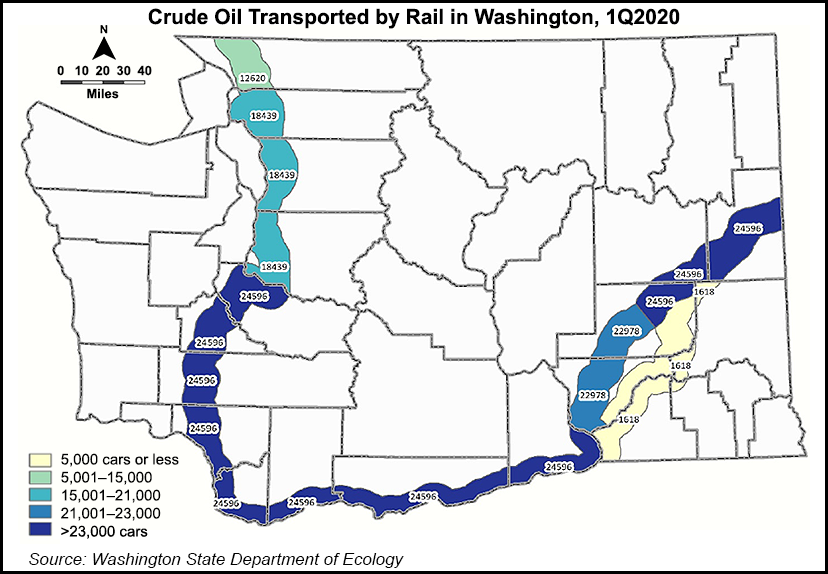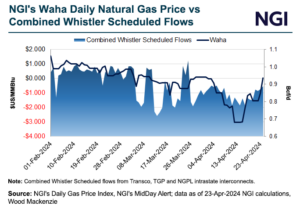Regulatory | NGI All News Access
PHMSA Sides with North Dakota, Montana in Crude-by-Rail Dispute with Washington State
Federal regulators have concluded that rules for transporting oil preempt a state of Washington rule for screening interstate crude-by-rail shipments from North Dakota and Montana.

The Department of Transportation’s U.S. Pipeline and Hazardous Materials Safety Administration (PHMSA) said the applicable federal law preempts Washington’s vapor pressure limit for oil loaded or unloaded from rail tank cars.
PHMSA said the principal reasons for its ruling are that vapor pressure requirements constitute a “scheme” for classifying hazardous materials; vapor pressure criteria impose requirements for handling the crude; and the state requirement constitutes an “obstacle” to carrying out the federal law.
“In addition, PHMSA finds that the administrative record regarding Washington state’s advance notice of transfer requirement is insufficient to make a determination whether the requirement is preempted under the federal Hazardous Materials Transportation Act,” PHMSA said in the Federal Register.
In May, a spokesperson for the Washington Department of Ecology said it was undeterred by a U.S. Department of Energy report by Sandia National Laboratories that concluded Bakken Shale crude could be safely transported by rail as there is a difference among the oil supplies.
Washington regulators are planning hearings to implement state Senate Bill 5579, which should be completed by January, said spokesperson Ty Keltner.
North Dakota Department of Mineral Resources Director Lynn Helms said the PHMSA preemption has passed the court appeal deadline, so the preemption stands. “The state Industrial Commission (IC) is going to take a look at its own standards and see what might be more appropriate for us to do in view of PHMSA’s action,” he said.
The North Dakota IC six years ago established rules on conditioning crude supply before it is shipped. Given several oil-by-rail train accidents over the last decade, some opponents have argued that Bakken oil is more subject to shipping accidents.
© 2024 Natural Gas Intelligence. All rights reserved.
ISSN © 2577-9877 | ISSN © 2158-8023 |


